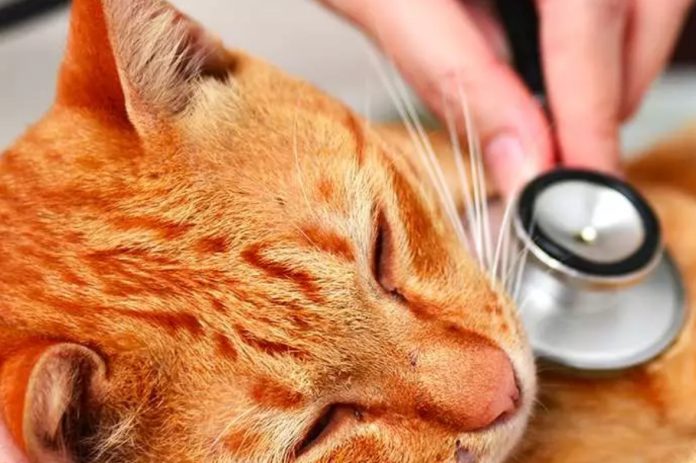As cat lovers, we want our feline friends to lead happy, healthy lives. One of the most significant factors in ensuring their well-being is providing them with proper nutrition. In this blog post, we will explore the concept of specialized cat diets for managing health issues and offer practical advice to help you make well-informed decisions about the best dietary options for your furry companions. From understanding health conditions to identifying dietary requirements, we will delve into the crucial aspects of choosing specialized cat diets.
Understanding Your Cat’s Health Condition
Just like humans, our feline friends are also susceptible to various health conditions. These conditions can range from chronic to acute, but can be managed with the right diet. Some of the most common health issues in cats include kidney disease, diabetes, and allergies. To ensure that your cat is getting the proper nutrition, it’s important to understand their specific health needs.
When selecting a healthy cat food, it’s essential to consider the ingredients and nutrients that will help alleviate your cat’s health condition. This will not only help them feel better but also improve their quality of life. The good news is that there are now many options available in the market, designed specifically for cats with various health concerns.
Early detection of any health issue is also vital for the well-being of your feline friend. Observing your cat’s behavior, energy levels, weight, and appetite can give you valuable insights into their health. If you notice any significant changes, it’s always best to consult with a veterinarian. Early intervention can help manage the condition and prevent it from becoming more severe.
Taking care of your cat’s health through diet is a simple but effective way to improve their quality of life. By being mindful of their specific health concerns and observing any changes, you can help keep your furry friend healthy and happy.
Identifying Dietary Requirements for Your Cat
Cats require a specific balance of nutrients for optimal health, and key nutrients include proteins, fats, vitamins, and minerals. Understanding your cat’s unique needs is vital in helping you choose the best cat food to manage their health condition.
However, the nutritional needs of cats can vary depending on their health condition, and some cats may require a more tailored approach to their diet. For instance:
- Low-protein diets for cats with kidney issues
- Limited ingredient diets for those with allergies
- High fiber cat food for felines with diabetes
Choosing the right cat food is crucial for maintaining your cat’s overall health and wellness. By understanding your cat’s unique dietary needs and working with your veterinarian, you can ensure that your furry friend is getting the proper nutrition they need to live a long and healthy life. It’s important to keep in mind that even healthy cats may have different dietary requirements at different life stages, such as kittenhood, adulthood, and seniority. That’s why it’s essential to work with your veterinarian to determine the best diet for your feline friend at every stage of their life.
Working with Your Veterinarian
When it comes to your cat’s diet, it’s important to seek the advice of a veterinarian first and foremost. They are the experts when it comes to feline nutrition and will be able to provide you with tailored recommendations based on your cat’s individual needs and health status. By following their guidance, you can rest assured that you’re doing everything you can to keep your furry friend in tip-top shape.
It’s also important to remember that a specialized diet isn’t a one-and-done situation. Regular veterinary check-ups are a must to ensure that your cat is thriving on their new diet. These check-ups give your veterinarian the opportunity to monitor your cat’s health and assess how well the diet is working for them. If any changes are needed, they can be made early on, before any potential health problems arise.
Having open and consistent communication with your veterinarian is key to ensuring your cat’s well-being. By working together, you and your vet can create a diet plan that’s tailored to your cat’s specific needs and help keep them healthy and happy for many years to come.
Monitoring Your Cat’s Progress at Home
As a responsible cat owner, it’s important to keep a close eye on your cat’s behavior, appetite, and overall health. This will allow you to identify any changes, whether positive or negative, that may be linked to their specialized diet. Monitoring your cat’s progress at home can provide valuable insights into the effectiveness of their dietary plan.
In some cases, you may need to make adjustments to your cat’s specialized diet. This could be due to changes in their health condition, lack of improvement, or the development of new concerns. It’s vital to be adaptable and responsive to your cat’s needs, ensuring their diet continues to provide the best possible support for their health issues. Consult your veterinarian for guidance on when and how to make these adjustments.
Managing your cat’s health issues through specialized diets requires a thorough understanding of their specific health condition, identifying the appropriate dietary requirements, and working closely with your veterinarian. By monitoring your cat’s progress both at home and through regular veterinary check-ups, you can make well-informed decisions about the best cat food options to maintain their well-being.
As a loving cat owner, it’s essential to prioritize your feline companion’s health and happiness. With the knowledge and guidance shared in this blog post, you are now better equipped to make informed choices about specialized diets for your cat. Remember, always consult with your veterinarian when considering any dietary changes, and work together to ensure your cat’s health issues are effectively managed through the most appropriate diet plan.



































